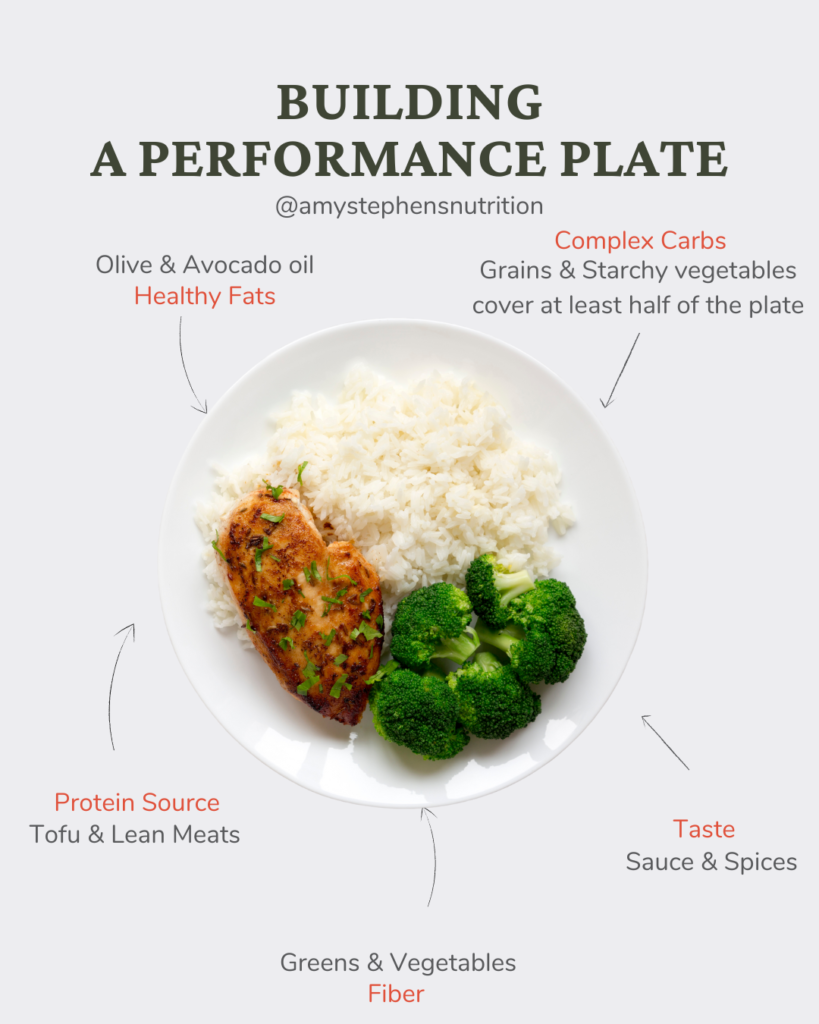Amy Stephens
MS, RDN, CSSD, CEDS
Licensed dietitian
specializing in sports nutrition
and eating disorders
MS, RDN, CSSD, CEDS
Licensed dietitian
specializing in sports nutrition
and eating disorders

As a college athlete, proper nutrition is crucial for fueling your performance, supporting recovery, and maintaining overall health and well-being. It’s important to remember that your bodies are still developing and getting stronger. Nutrition has to be adequate to fuel you as a human, exercise, recovery and commuting to class. It’s important to pay careful attention to ensure you are fueling your body to stay healthy and prevent injuries. Additionally, as training volume and intensity increase over a training period, dietary needs evolve. Athletes must adapt their food intake to align with workout intensity and duration throughout the semester to avoid underfueling.
Here are some tips on how to nourish your body as a college athlete:


By following these tips and prioritizing proper nutrition, you can fuel your performance as a college athlete and support your overall health and well-being.
Licensed Dietitian Specializing in sports nutrition and eating disorders
© Amy Stephens Nutrition
Website by Second Language